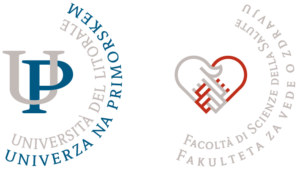More about the courses
24-HOUR MOVEMENT BEHAVIOURS AND HEALTH
Predmet: 24-urno gibalno vedenje in zdravje
Course title: 24-hour movement behaviours and health
ECTS: 3
Lecturer: Prof. Nejc Šarabon
Content: The objective of the course is to understand co-dependence of physical activity, sedentary behaviour, and sleep (i.e., movement behaviours) and their importance for health. Students will gain knowledge about the relationship between movement behaviours and health, methods for assessment of movement behaviours, factors that influence movement behaviours, and principles of designing interventions for influencing movement behaviours. They will gain knowledge about public health 24-hour movement guidelines for different age groups, and other strategic documents for supporting healthy 24-hour movement behaviours. Students will develop abilities and knowledge necessary for critical interpretation of epidemiological studies, and for design and evaluation of interventions for supporting healthy 24-hour movement behaviours among different populations.
BRAIN AND NUTRITION
Predmet: Možgani in prehranjevanje
Course title: Brain and nutrition
ECTS: 3
Lecturer: Assist. Prof. Nina Mohorko
Content:
SPORTS FOR RELAXATION
Predmet: Šport za sprostitev
Course title: Sports for relaxation
ECTS: 3
Lecturer: Assist. Prof. Urška Čeklič
Content: In the course, participants will acquire knowledge of preparing and organising lessons in selected subjects in the elementary school. Participants will be able to define a specific environment and adapt exercises according to the chosen sport. The selected sports, such as yoga, Nordic walking, cycling, etc., have a recreational character. The participants will learn the basics for organising a lesson in these sports and recognise the specifics. Furthermore, they will be able to critically evaluate their work and the work of individuals involved in the process.
ALTERNATIVE MANNERS OF NUTRITION
Predmet: Alternativni načini prehrane
Course title: Alternative manners of nutrition
ECTS: 3
Lecturer: Tadeja Jakus, PhD
Content: Alternative diets are becoming increasingly popular among people, but little is known about their effects on health. In the course students will learn more about the effects of fasting on health. How can a low-carbohydrate, high-fat diet affect our health, can it help with diabetes, mental health or drug-resistant epilepsy? How can we plan a well-balanced vegan diet for an athlete, avoiding nutrient deficiencies? Do alternative food sources such as artificial sweeteners and alternative protein sources affect our health? We will discuss popular alternative diets and try to explain their use and their impact on our health and well-being.
INTEGRATIVE METHODS OF SUPPORTING TREATMENT
Predmet: Integrativne metode podpornega zdravljenja
Course title: Integrative methods of supporting treatment
ECTS: 3
Lecturer: Assist. Prof. David Ravnik
Content:
HEALTH EDUCATION AND COMMUNICATION
Predmet: Edukacija in komunikacija na področju zdravstvenih ved
Course title: Health education and communication
ECTS: 3
Lecturer: Assoc. Prof. Sabina Ličen
Content: By the end of the course, students will understand the characteristics and laws of education and the process of education in healthcare. They will be able to design, plan and organise a health education programme and prepare, implement, analyse, evaluate and improve a health education programme. In addition, students will be able to communicate effectively within a healthcare team and understand the interplay of factors that influence successful communication. In their work, students will be able to apply assertive communication.
PROJECT MANAGEMENT
Predmet: Upravljanje projektov
Course title: Project management
ECTS: 3
Lecturer: Assoc. Prof. Klemen Širok
Content: In the Project Management course, students learn the basic terminology in the field of project management. They learn about publicly available information on public tenders, funding sources and potential project partners, and become familiar with the basic procedures, principles and tools for preparing, managing and controlling projects. Their competences are developed through the preparation of a project proposal, which runs in parallel with the lectures.
THE USE OF INFORMATION AND COMMUNICATION TECHNOLOGY (ICT) IN HEALTHCARE - SELECTED CONTENTS
Predmet: Izbrane vsebine iz uporabe informacijsko komunikacijskie tehnologije (IKT) v zdravstvu
Course title: The use of information and communication technology (ICT) in healthcare – selected contents
ECTS: 3
Lecturer: Assoc. Prof. Boštjan Žvanut
Content: In the course »The use of information and communication technology (ICT) in healthcare – selected contents«, participants will acquire knowledge and skills required in today’s healthcare environment, where the use of ICT has become indispensable. In this course, we will discuss the use of ICT in healthcare and conduct hands-on seminars on the use of ICT for teamwork, ICT-based assistive technologies and their use in health/social care, and website development tools. Students will be required to complete a practical project assignment using the aforementioned technologies and present it to their peers.
RESEARCH PROJECT
Predmet: Raziskovalni projekt
Course title: Research project
ECTS: 3
Lecturer: mentor
*only available to participants who register for the entire module

![]()


